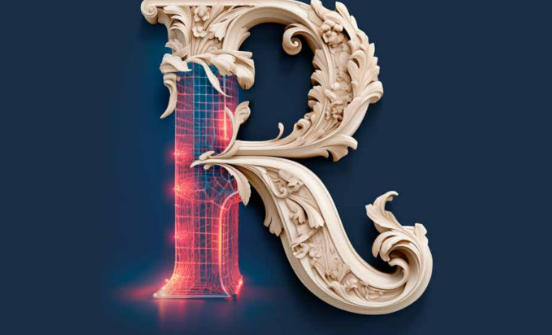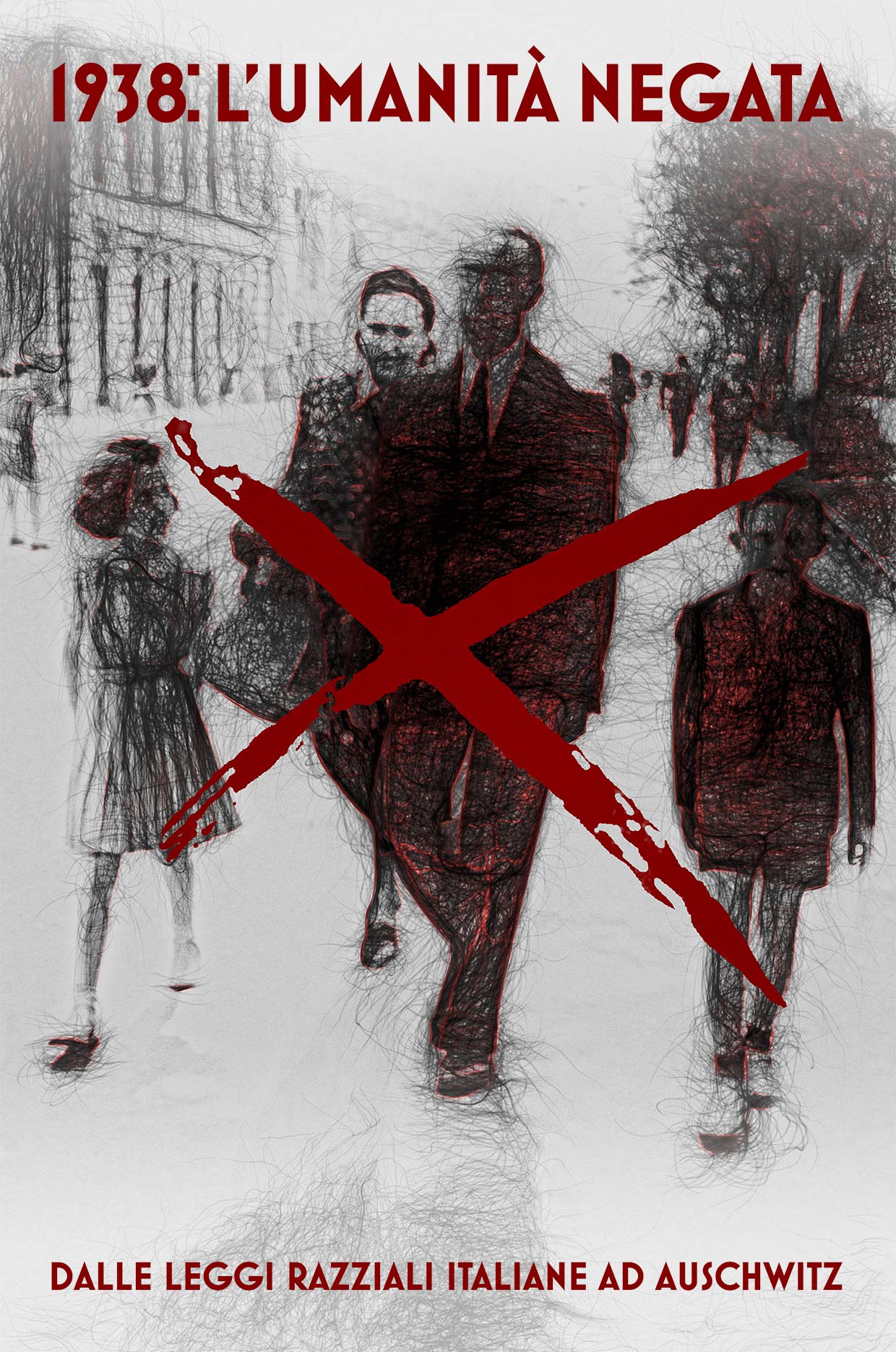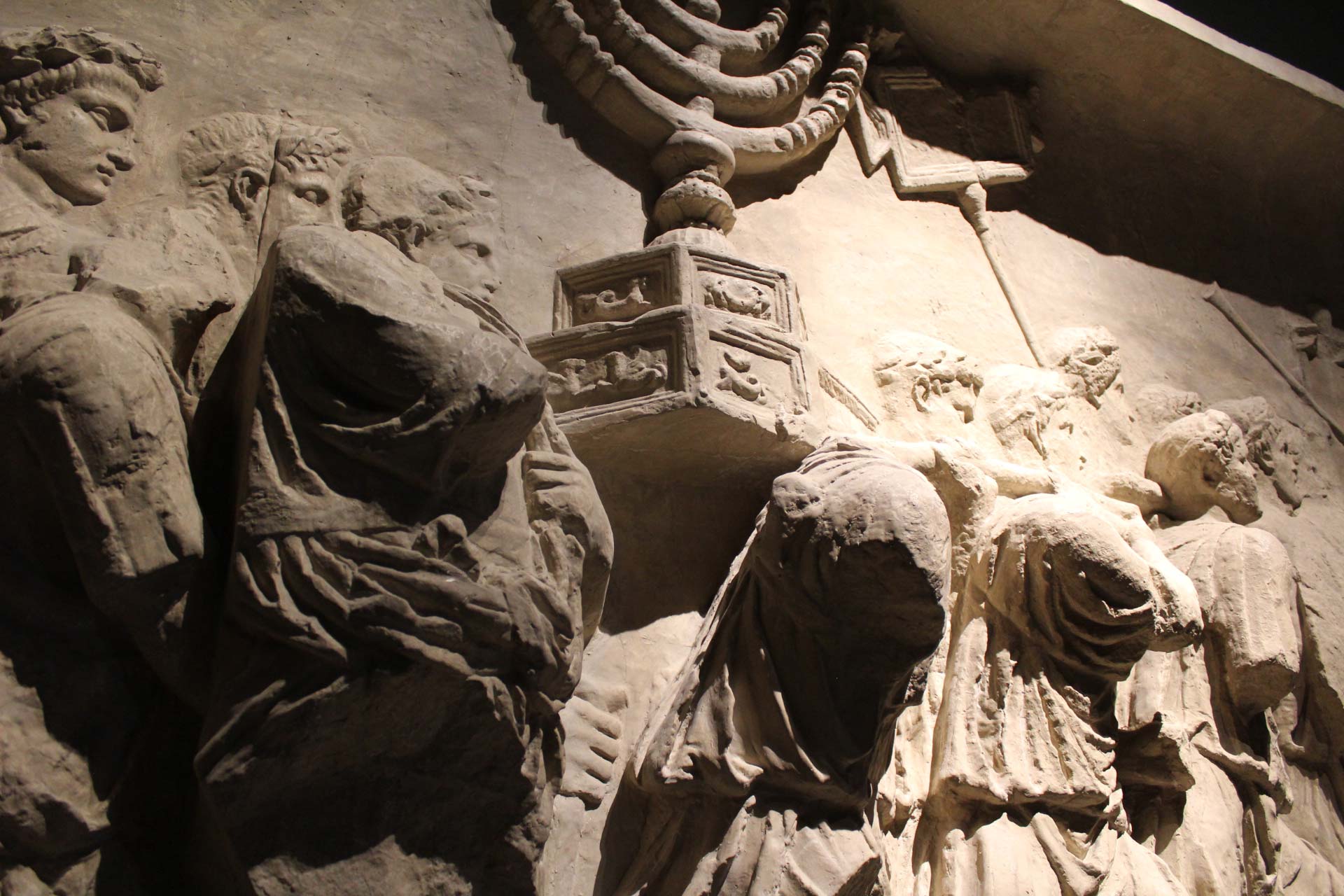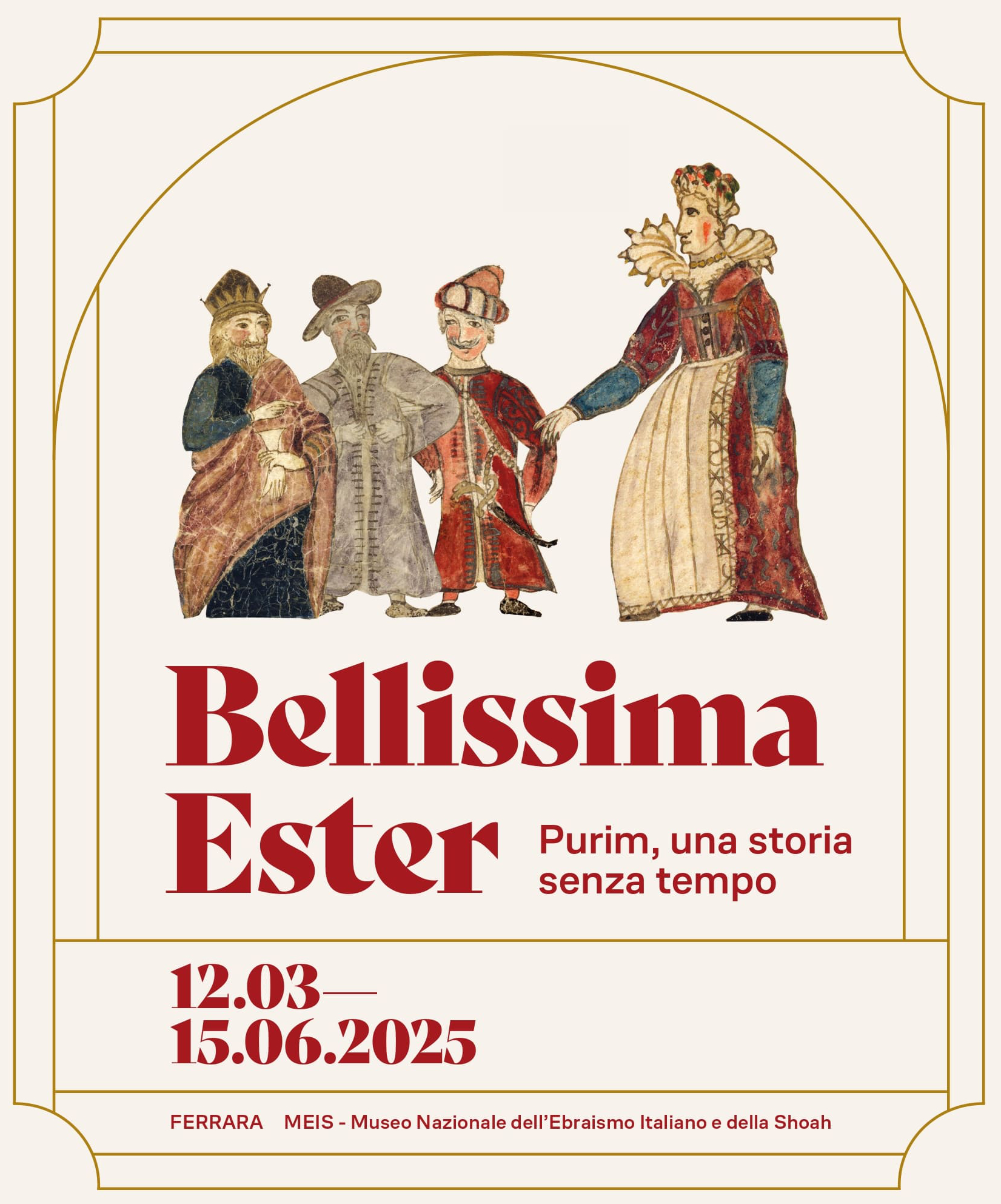
A rabbi and scribe: Meet the new director of the Italian Jewish Museum
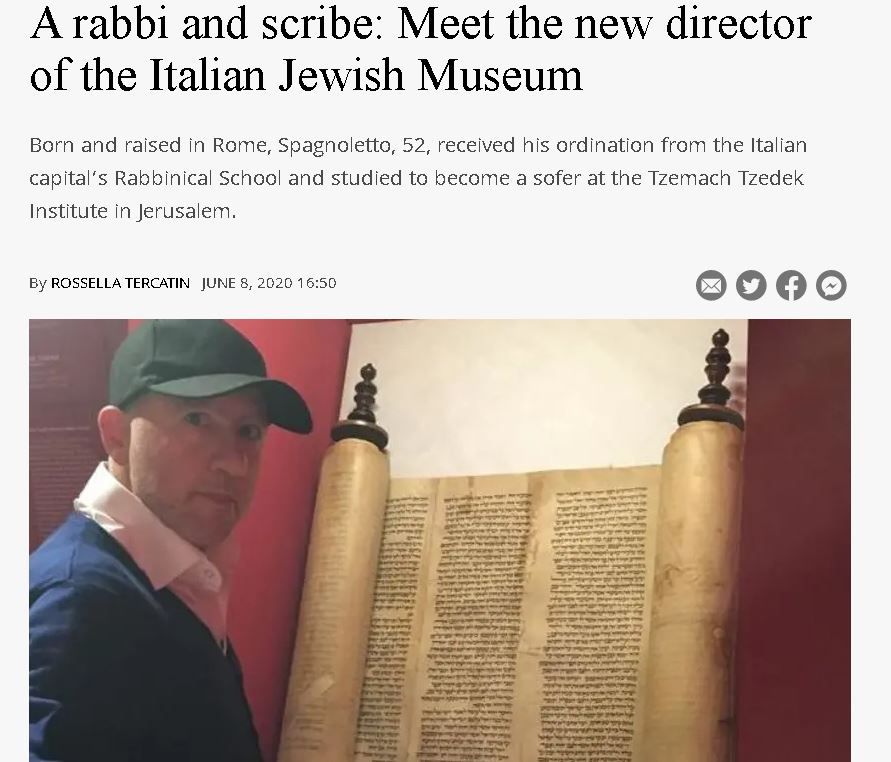
By Rossella Rachel Tercatin
Amedeo Spagnoletto, a rabbi and sofer (a Jewish ritual scribe) has been appointed as the new director of the National Museum of Italian Judaism and the Shoah (MEIS), the museum announced on Thursday. Located in the city of Ferrara in northern Italy, celebrated in the renowned novel The Garden of the Finzi-Continis by local Jewish writer Giorgio Bassani, the museum has been partially operating for a few years, but several of its buildings are still under construction. Spagnoletto was selected by MEIS’s board from a pool of 17 applicants from Italy and abroad, becoming one of a handful of rabbis in the world to lead a museum. “When I was told I had been selected I was very surprised. I was not sure how my background would play,” he told The Jerusalem Post. “However, Italy boasts a long and great tradition of rabbis active in other fields as well. In past as well as present times, we have had rabbis who were also physicians, teachers, academics, engineers and so on… I think that the museum’s choice goes in the direction of debunking a cliché about what a rabbi does, which is very good, considering that fighting clichés and prejudices is one of the MEIS’s missions.” Born and raised in Rome, Spagnoletto, 52,52, received his ordination from the Italian capital’s Rabbinical School and studied to become a sofer at the Tzemach Tzedek Institute in Jerusalem. He also studied at the School of Library Science of the Vatican Library. In the past he served for several years as the chief rabbi of Florence. As a sofer, the rabbi has collaborated with Jewish institutions in Italy and abroad to identify, restore and conserve ancient Jewish manuscripts. It was during one of his frequent checks on such materials in possession of Italian Jewish communities that Spagnoletto ran into one of the most extraordinary Jewish artifacts that have been uncovered in modern times, kept for centuries in the small synagogue of the town of Biella: a Torah scroll, perfectly intact, that carbon dating assessed was manufactured around the year 1250, making it one of the oldest in the world still fit for ritual use. Spagnoletto highlighted that one of his goals as MEIS director is showcasing the treasures of those Italian Jewish communities, who because of their limited numbers and resources, would not be otherwise able to share their heritage to the public and whose troves are full of “secret jewels.”
“It is still too early for me to formulate specific projects for my tenure. My first priority will be to study and understand the incredible work that my predecessor Simonetta Della Seta carried out in the past four years,” Spagnoletto said. “However, I definitely see my upcoming activity at the MEIS as rooted in my experiences and background, made of collaborations with many Jewish museums and with Italian Jewish institutions and communities. I would be happy for the museum to become a place where those who do not have the strength to promote their Jewish heritage, not only in terms of objects and artifacts, but also pride and identity, find the opportunity to do so, benefitting the Italian society at large and all Italian Jewish communities, from the smallest to the largest,” he added. Jews have continuously lived in the Italian peninsula for about 2,000 years, making Italian Jews one of the most ancient communities in the Diaspora. Today Italy is home to about 25,000 Jews, mostly in Rome and Milan. Several Jewish communities run their own museums, but the MEIS was established with a law passed by the Italian Parliament and it is funded by the authorities. Spagnoletto emphasized that if many ritual objects and books have been looted, lost or damaged over the centuries, among the ancient artifacts still in possession of Italian communities and synagogues are a vast amount of Torah scrolls (“There are synagogues where there are many more Torah scrolls than worshipers,” he said). As all cultural institutions in the country, the museum has been closed for the coronavirus emergency. The inauguration of a new exhibition devoted to Jewish life in Italy covering the period between the establishment of the ghettos and emancipation, which was scheduled in April, has been postponed to the beginning of 2021, while a temporary exhibition on the Jewish history and life in the city of Ferrara has been offered online. “We are already working on creating a protocol to allow schools to visit us safely starting from the beginning of the next school year,” Spagnoletto said, highlighting that they are also working with the Jewish community of Ferrara to create a program that would include also the tour of the city’s synagogues. “The relationship with the community is very strong.”
Altri contenuti

10 luglio, evento in presenza
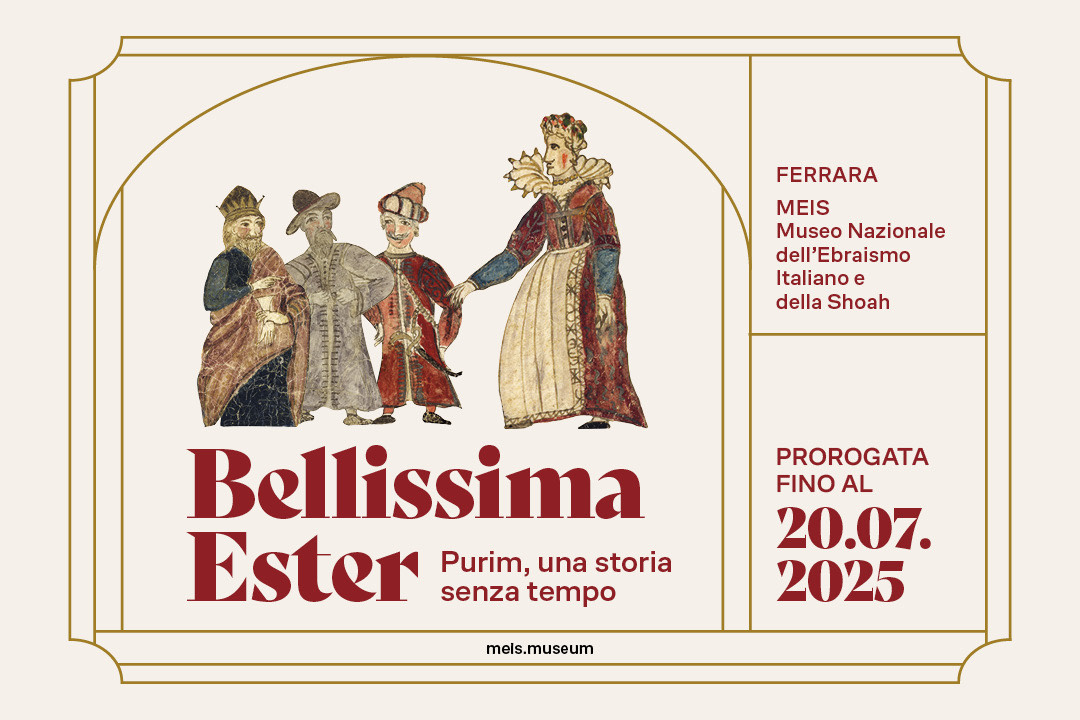
Prorogata fino al 20 luglio la mostra del MEIS “Bellissima Ester”
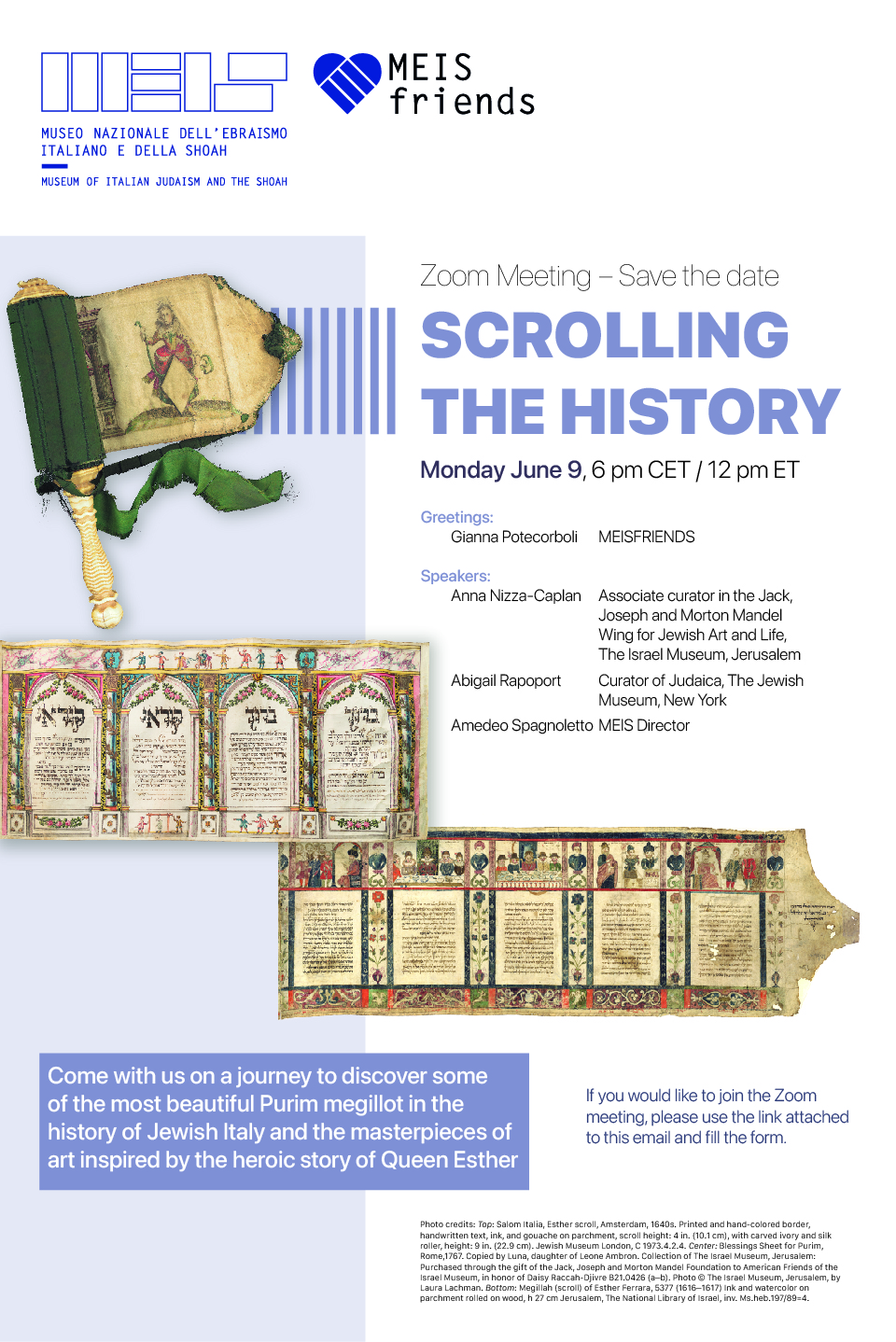
Online event
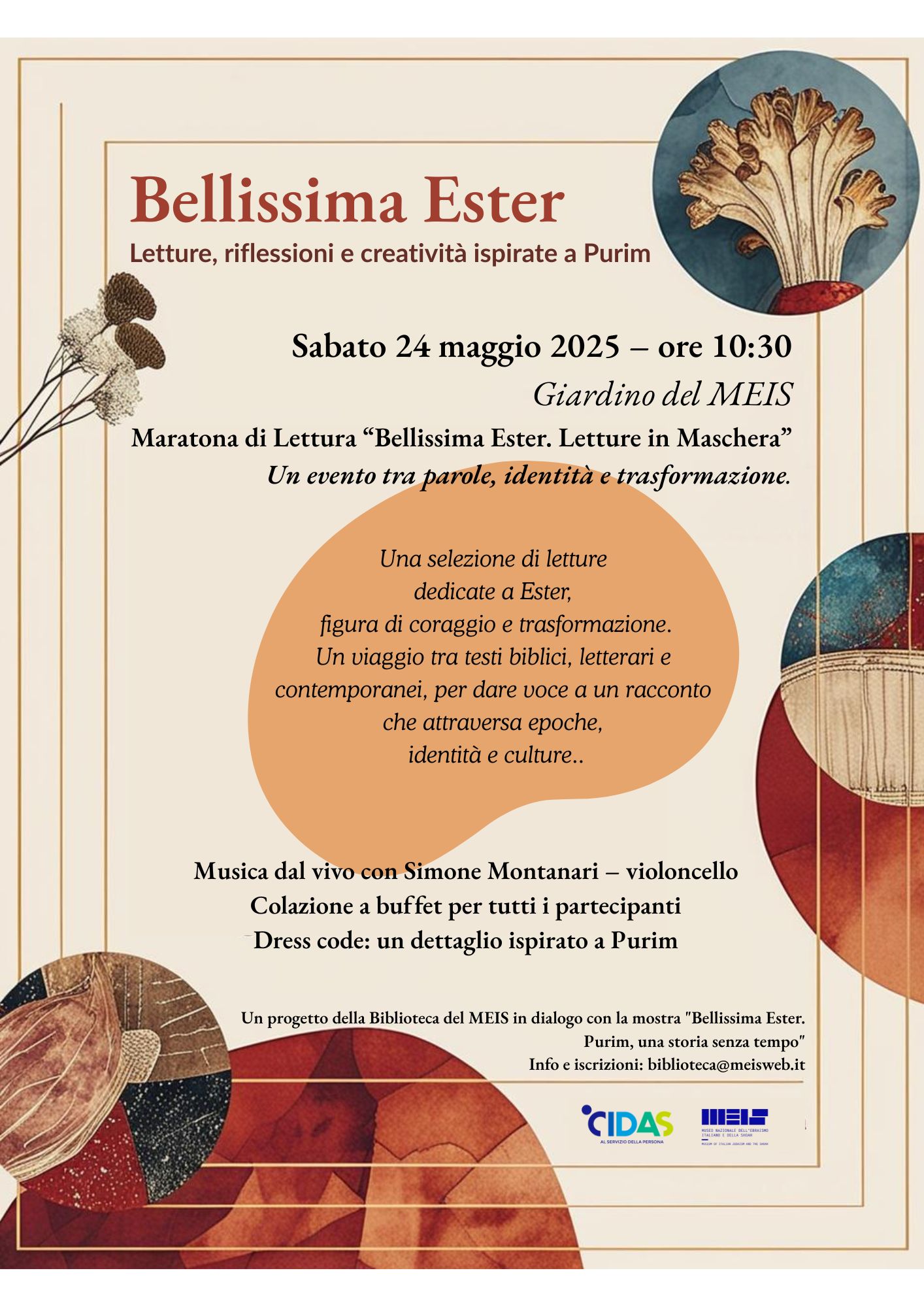
Sabato 24 maggio, appuntamento in giardino con la Biblioteca del MEIS
